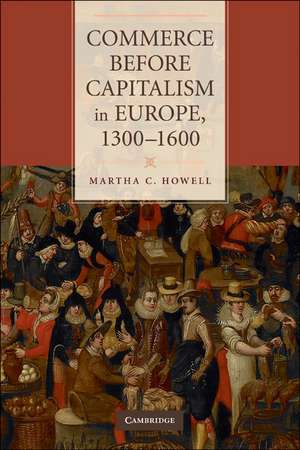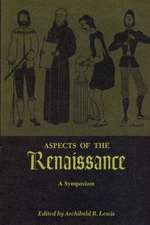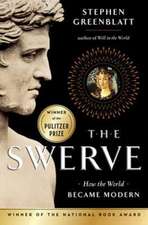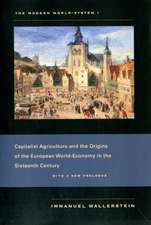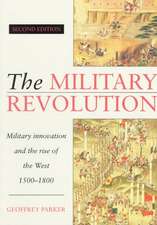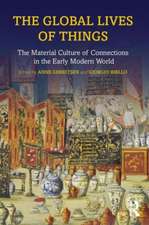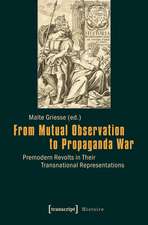Commerce before Capitalism in Europe, 1300–1600
Autor Martha C. Howellen Limba Engleză Paperback – 11 apr 2010
| Toate formatele și edițiile | Preț | Express |
|---|---|---|
| Paperback (1) | 241.62 lei 6-8 săpt. | |
| Cambridge University Press – 11 apr 2010 | 241.62 lei 6-8 săpt. | |
| Hardback (1) | 646.12 lei 6-8 săpt. | |
| Cambridge University Press – 11 apr 2010 | 646.12 lei 6-8 săpt. |
Preț: 241.62 lei
Nou
Puncte Express: 362
Preț estimativ în valută:
46.24€ • 48.43$ • 38.32£
46.24€ • 48.43$ • 38.32£
Carte tipărită la comandă
Livrare economică 08-22 aprilie
Preluare comenzi: 021 569.72.76
Specificații
ISBN-13: 9780521148504
ISBN-10: 0521148502
Pagini: 378
Ilustrații: 27 b/w illus. 2 maps 1 table
Dimensiuni: 152 x 229 x 20 mm
Greutate: 0.52 kg
Editura: Cambridge University Press
Colecția Cambridge University Press
Locul publicării:New York, United States
ISBN-10: 0521148502
Pagini: 378
Ilustrații: 27 b/w illus. 2 maps 1 table
Dimensiuni: 152 x 229 x 20 mm
Greutate: 0.52 kg
Editura: Cambridge University Press
Colecția Cambridge University Press
Locul publicării:New York, United States
Cuprins
Introduction; 1. Movable/immovable, what's in a name?; 2. 'Pour l'amour et affection conjugale'; 3. Gift work; 4. The dangers of dress; 5. Rescuing commerce; Afterword.
Recenzii
'This is a work of mature scholarship, the product of extensive research, exhaustive reading, and deep thought. Taking medieval merchants and artisans at their word, Martha Howell describes a world in which marriages, fashion, and gift-gifting were as economic as deal-making. This important book has it all - archival gems, artfully crafted writing, and intriguing conclusions. Readers will find much here to enjoy and ponder.' Judith Bennett, University of Southern California
'Martha Howell combines elements of her groundbreaking earlier work on small-commodity production, the family, and material culture to create a compelling new interpretation of Western European societies during the transition from feudalism to capitalism; this is an exciting book about an exciting topic by an exciting author.' Maarten Prak, Utrecht University
'In Commerce before Capitalism in Europe, Martha Howell upends the old teleologies of economic history. In their place, she offers a powerful new model oriented around consumption, credit, and material culture. The later middle ages emerge in this work as a period of vibrant cultural innovation, during which property and display take on new meanings and supposedly primitive practices, like gift-giving, accelerate rather than decay. This is a pathbreaking contribution to the new economic history.' Daniel Lord Smail, Harvard University
'Martha Howell's masterful analysis is based on extensive archival research and displays impressive, wide-ranging erudition. Her thoughtful examination of the structural changes in the ideas and practices about property, marriage, gifts, dress, and commerce represents a very original, multidisciplinary combination of sociocultural and institutional economic history. The book is authoritative, fundamental, and pathbreaking and makes for fascinating reading; it is a first-rate contribution to the historical sciences.' Herman Van der Wee, Leuven University
'Martha Howell combines elements of her groundbreaking earlier work on small-commodity production, the family, and material culture to create a compelling new interpretation of Western European societies during the transition from feudalism to capitalism; this is an exciting book about an exciting topic by an exciting author.' Maarten Prak, Utrecht University
'In Commerce before Capitalism in Europe, Martha Howell upends the old teleologies of economic history. In their place, she offers a powerful new model oriented around consumption, credit, and material culture. The later middle ages emerge in this work as a period of vibrant cultural innovation, during which property and display take on new meanings and supposedly primitive practices, like gift-giving, accelerate rather than decay. This is a pathbreaking contribution to the new economic history.' Daniel Lord Smail, Harvard University
'Martha Howell's masterful analysis is based on extensive archival research and displays impressive, wide-ranging erudition. Her thoughtful examination of the structural changes in the ideas and practices about property, marriage, gifts, dress, and commerce represents a very original, multidisciplinary combination of sociocultural and institutional economic history. The book is authoritative, fundamental, and pathbreaking and makes for fascinating reading; it is a first-rate contribution to the historical sciences.' Herman Van der Wee, Leuven University
Notă biografică
Descriere
Challenges dominant interpretations of the relationship between the so-called commercial revolution of late medieval Europe and the capitalist age that followed.
